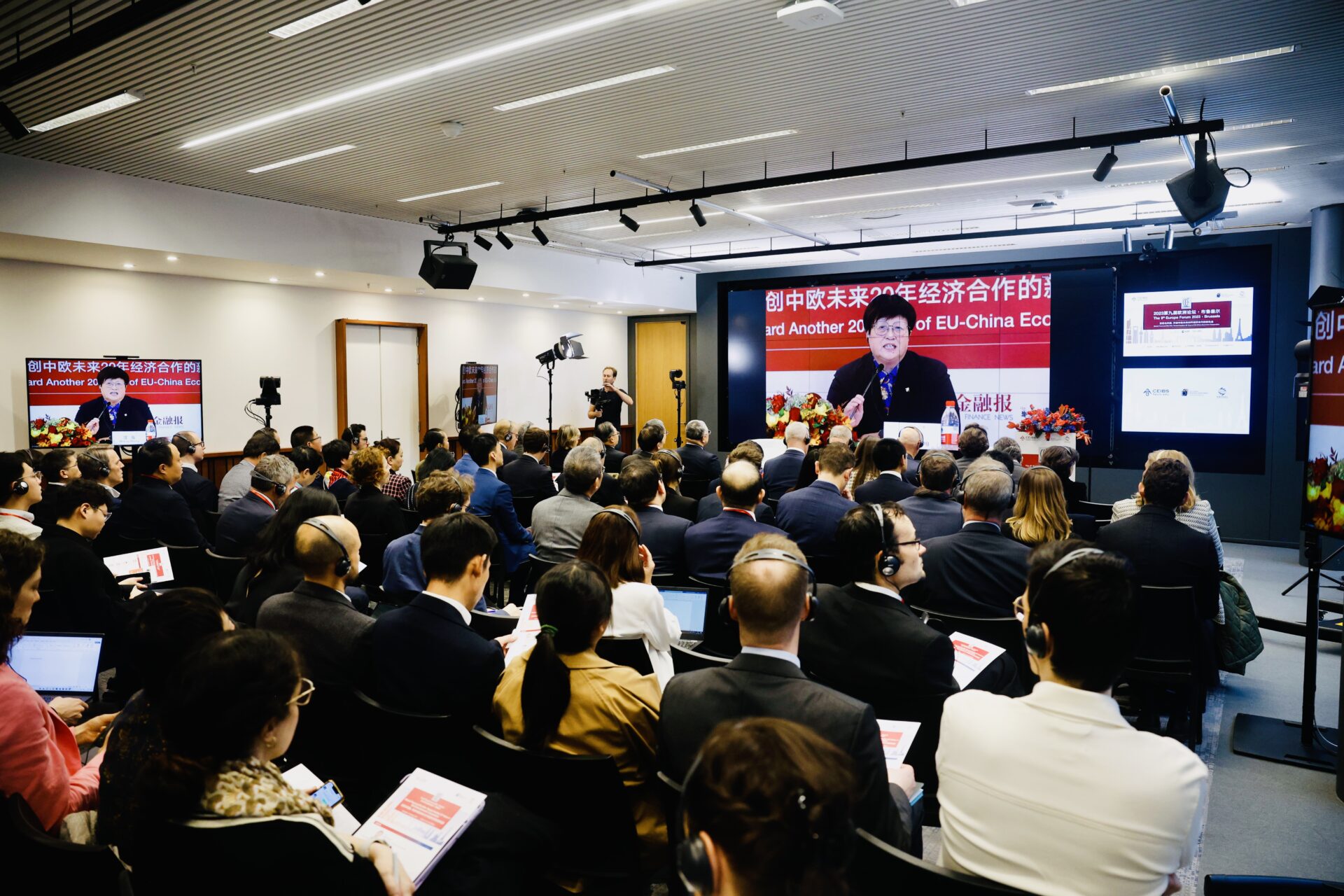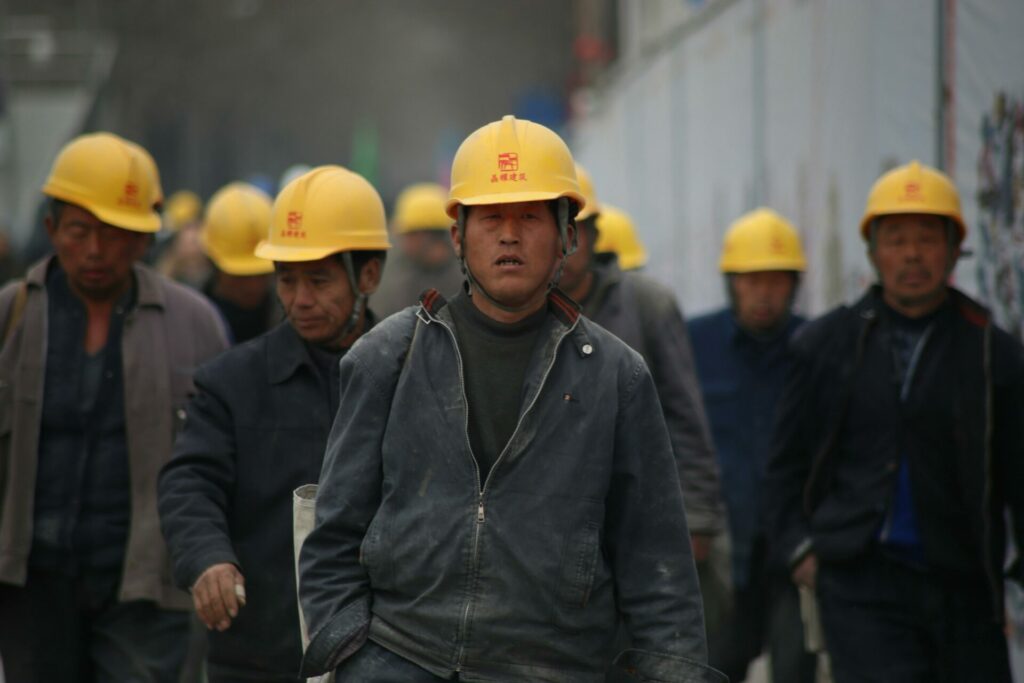The current political and economic tensions between China and the West very much resemble the disputes between Japan and the US in the 1980s, a leading expert on Western-Asian relations has claimed.
Speaking on the sidelines of the recent China Europe International Business School (CEIBS) annual Europe Forum in Brussels, CEIBS European President and Professor of Marketing Dominique Turpin noted that current Western concerns about the competitiveness of Chinese electric vehicles closely mirror American worries about Japanese cars four decades ago.
"By training, I'm a Japan expert, and the frictions between the United States, Europe, and China are very similar to what we were hearing in the 1980s with Japan," Turpin said. "At the time [it was about] Toyotas and Nissans. But today it's not the Japanese. It's the Chinese."
'The jury is still out'
Turpin, who completed his PhD in economics at Sophia University in Tokyo in 1986 and previously served as the Dean and President of Switzerland's International Institute for Management Development (IMD), emphasised that the "big question" facing China today is whether it can "manage globalisation" – something which, he said, Japan achieved with only limited success.
"The reason why Japan did not [stay on top] is that they missed their globalisation process. The Japanese were not able to manage international global businesses the way Europeans can."
Turpin illustrated the point by noting that globally successful Swiss companies – including Nestlé, Novartis, and UBS – have truly international boardrooms with senior positions filled with people from all over the world. By contrast, Japan-headquartered businesses remain overwhelmingly Japanese, both in terms of boardroom composition and company management style.

Dominique Turpin. Credit: CEIBS
This, according to Turpin, largely explains why Japan has become "less relevant in terms of global competitiveness" over the past few years, with the number of Japanese Fortune Global 500 companies dropping from 149 in 1995 to just 41 today. (By contrast, the number of Chinese Fortune Global 500 companies has risen from 4 to 135 over the same period.)
"The big question is: Will the Chinese be able to manage their globalisation properly? The jury is still out. It's too soon to say. As a professor of management, I am very interested in seeing how the Chinese manage their globalisation. If they don't place enough trust in local people it's likely to be complicated."
A different beast
Turpin did concede that there are some significant differences between China today and Japan in the 1980s. In particular, he noted that as a defeated nation in World War Two, Japan housed – and continues to house – tens of thousands of American troops spread across dozens of military bases.
"The Americans had some leverage over Japan because they were, and still are, ensuring their military security," he explains. "But China is a much more complex case."
Turpin also stressed that China's sheer size and economic heft – its population is more than ten times greater than Japan's and its economy three-and-a-half times larger – are other key differences.
"I love Japan, don't get me wrong. But if Japan goes into a major decline tomorrow [it wouldn't matter so much]. China is a different beast because China needs the world and the world needs China."

Credit: CEIBS
These are among the reasons why Turpin believes that European Commission President Ursula von der Leyen's call for the EU to "de-risk" itself from China – an apparent euphemism for reducing the bloc's economic dependence on Beijing – will ultimately prove extremely difficult, if not impossible, to implement.
"It's going to be very challenging. Companies like BMW, for example, are heavily dependent on the Chinese market. They cannot move tomorrow. Because a third of their sales are happening there."
Turpin also said that other Asian countries simply do not have the infrastructure to support manufacturing and other capital-intensive industries the way China can. "When China opened itself to economic reforms [in the 1980s] it built the highways and the shipyards. You go to Vietnam or you go to India and the infrastructure is still a big issue."
Lessons from the past
Turpin finished with a cautionary note about the dangers of the current economic and political tensions escalating to a full-scale war. "I have in my home a special issue of Fortune Magazine in 1933 on the trade frictions between Japan and the US. This led to a war. If you read this magazine again it is frightening."
Institutions like CEIBS, which is jointly funded by both the EU and the Chinese Government, have a crucial role to play in easing tensions and facilitating dialogue, he argues.
Related News
- Influx of low-price Chinese solar panels hit European market hard
- Washington and Beijing to hold trade talks in 2024
Turpin also noted that the difficulties in fostering mutual understanding have been compounded over the last few years by Covid-19-induced travel restrictions. "The number of foreign students in China today is one-tenth of what it was before the pandemic. Communication is super-important and this is why this forum can be a bridge between the [China and the West]."
Reflecting on a recent trip to the US, he highlighted the diplomacy being carried out in business institutions: "Deans of several leading business schools told me the US Government has told them to limit relations with China. But they don't because they believe that when you have tensions it's more important to talk."

